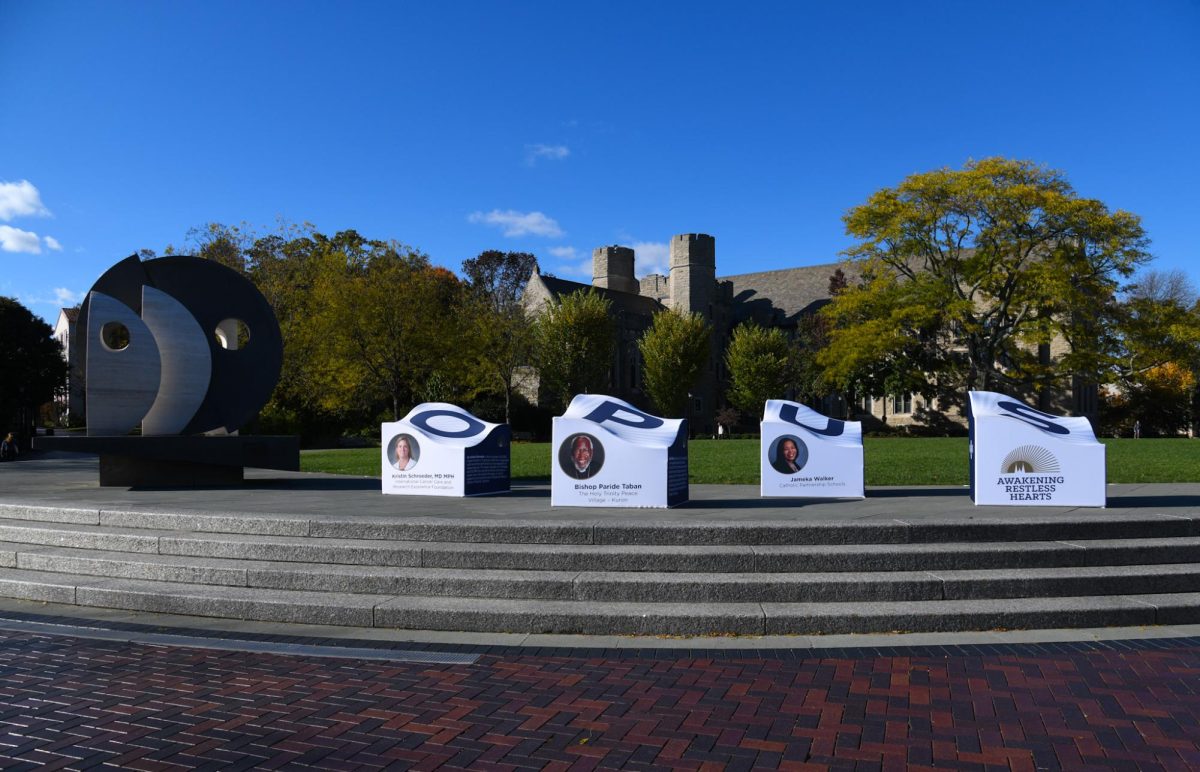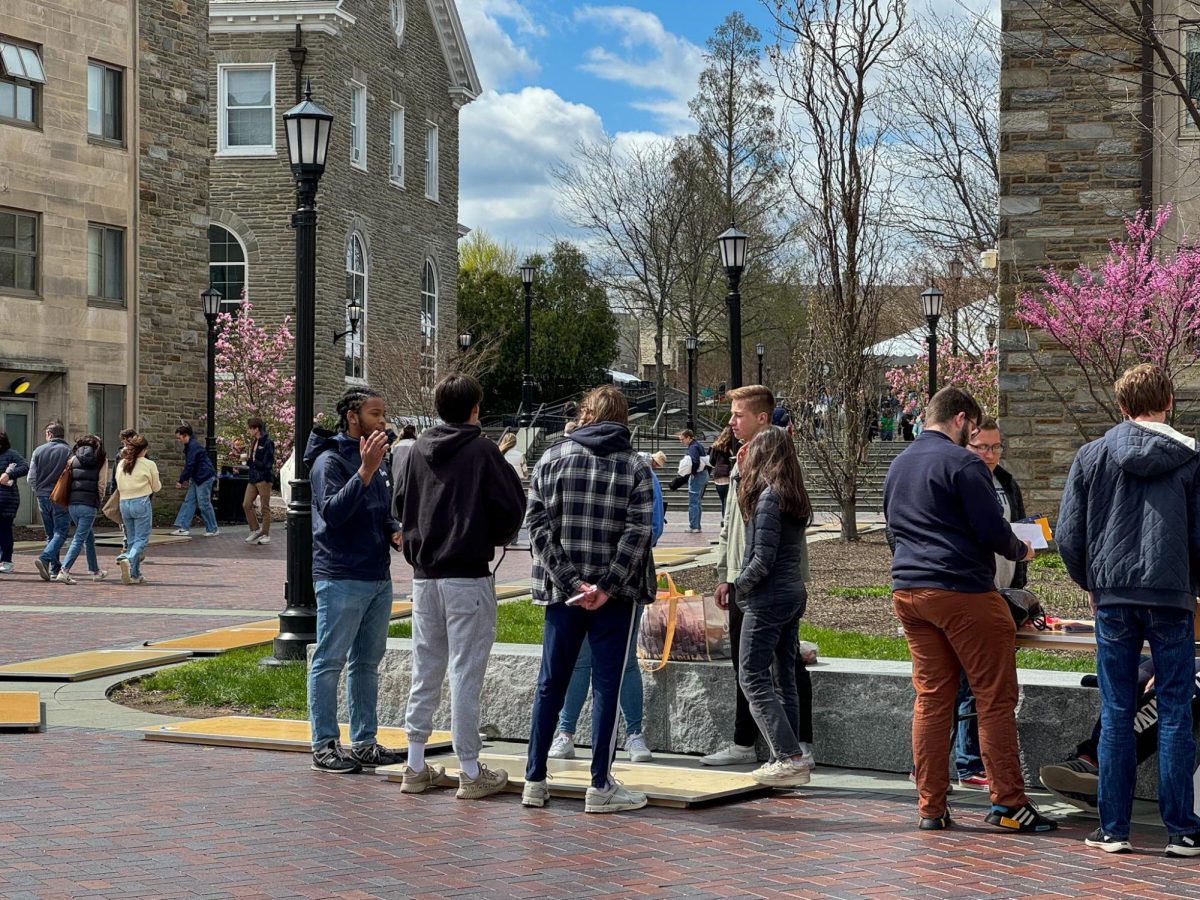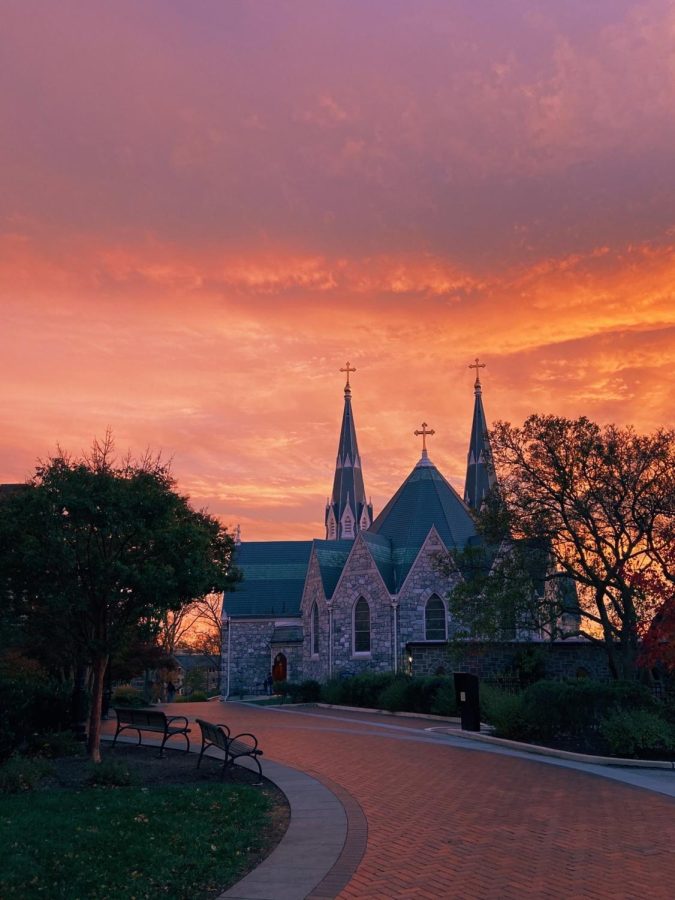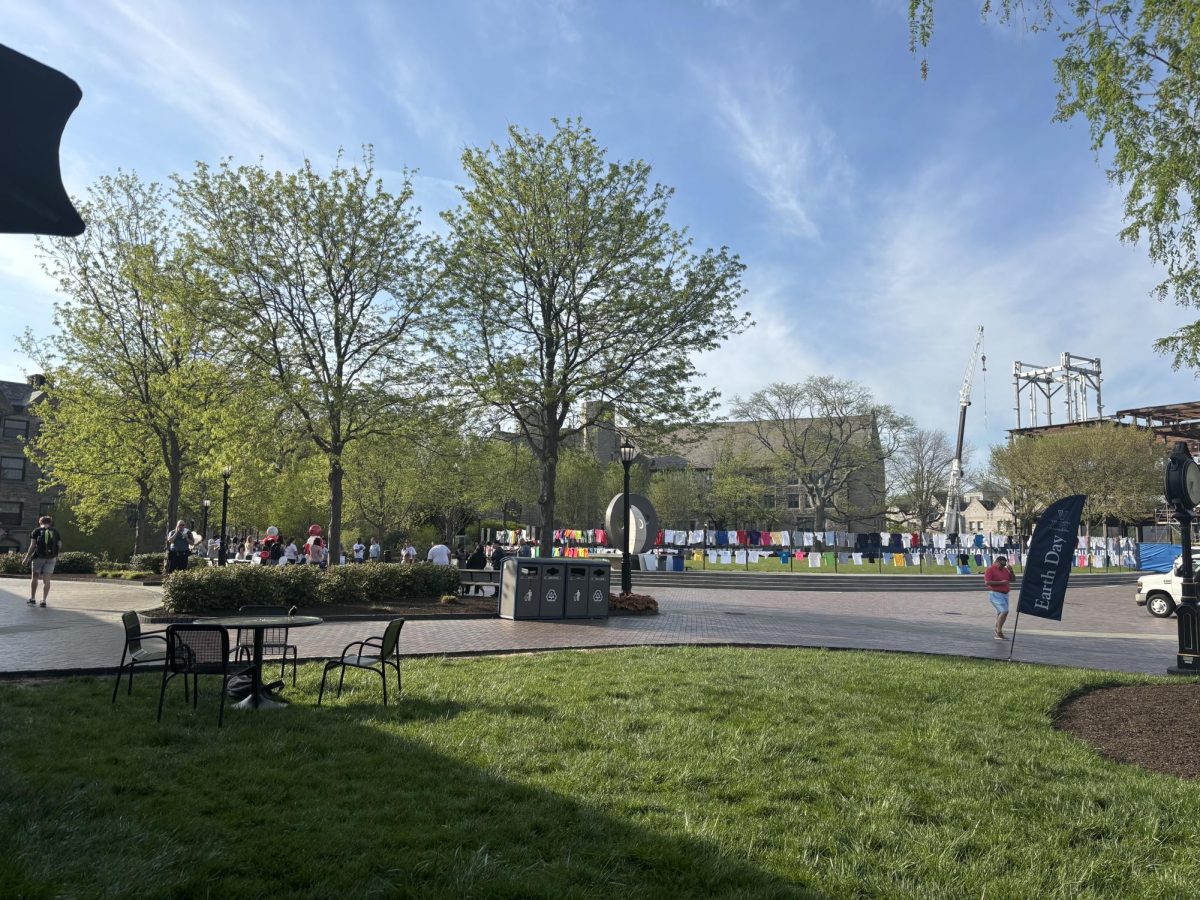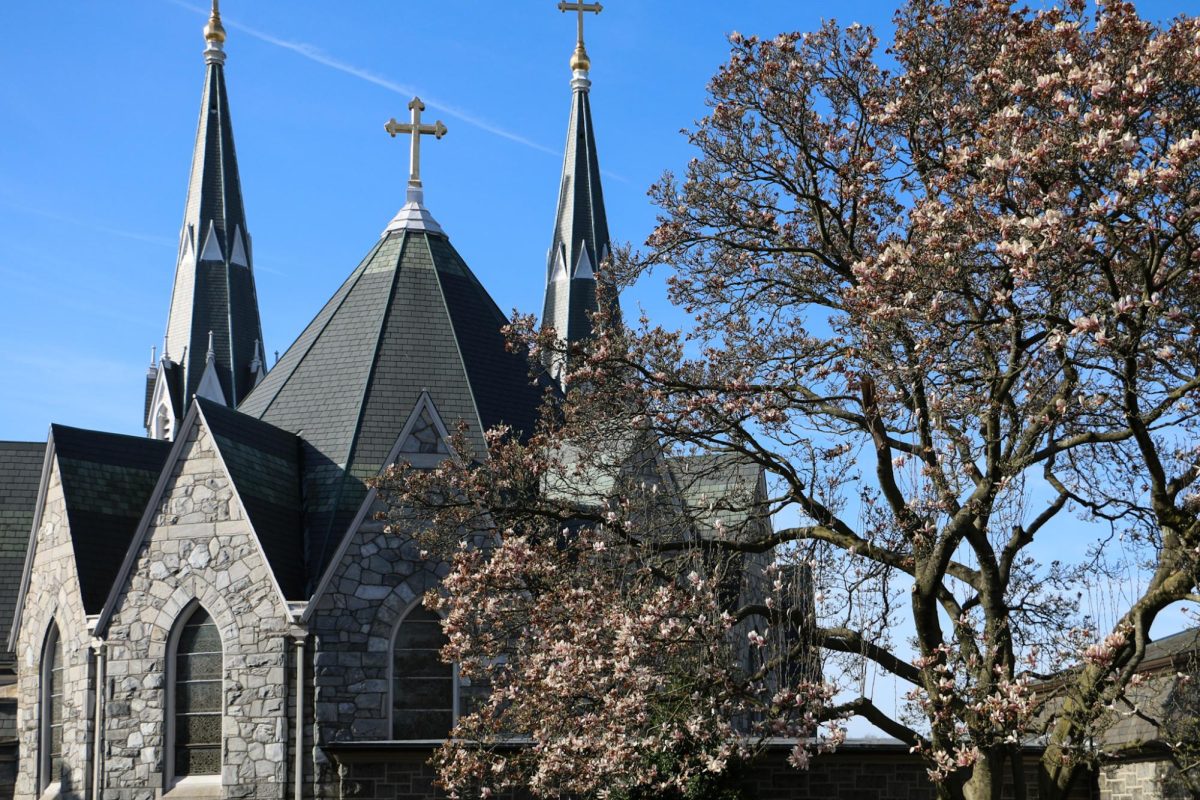Last week, Villanova hosted Prize Week for the Opus Prize, an annual faith-based humanitarian award given to candidates for their efforts in social entrepreneurship, according to Villanova’s website. Of the three candidates, the winner earns $1 million and both runners-up earn a $100,000 prize in order to support their current and future projects, as well as to encourage others to engage in such humanitarian service.
This year, the three finalists were Dr. Kristin Schroeder, Bishop Paride Taban and Jameka Walker. Schroeder co-founded iCCARE, a foundation which operates out of Bugando Medical Centre in Mwanza, Tanzania and provides cancer treatments to low-income families, helping survival rates for her patients to increase by 50% in the past eight years.
The late Bishop Taban established Holy Trinity Peace Village- Kuron in South Sudan, a community which welcomes people who have experienced conflict during and after 2011, when South Sudan gained independence. The Village provides “agriculture training, education, health services, and food security, as well as conflict resolution and peacebuilding,” allowing South Sudanese people who have undergone extreme hardship a safe place to call home.
Walker works as the Executive Director of Catholic Partnership Schools, a “network of five Pre-K–8th grade schools providing educational opportunities for children of all faith backgrounds in Camden, NJ, and the surrounding areas.” Walker aims to expand the program, grounded in faith-inclusive education, to as many children as possible within the poverty- and violence-stricken city, propelling students towards successful journeys through high school and higher education.
The week was filled with different events for the award, including Mass and prayer services, panels, lunches and of course, the award ceremony last Thursday. However, none of this programming would have been possible without the countless people who worked behind the scenes to make Prize Week a reality, including the members on the student committee.
One of the students who played a critical role in the operation was Lauren McLaughlin, who served as Villanova’s Ambassador for Taban, the finalist who ultimately won the Opus Prize. McLaughlin described her duties in this position.
“My role started last spring when we had preparatory Zoom meetings with some members of Villanova’s Opus Committee,” she said. “I then had a Zoom with leaders of the peace village, in which we got to ask them questions and learn directly from them. When the school year started, I attended meetings with the rest of the Committee, where we mainly discussed the many ways in which we would spread the word about Opus week.”
Tyler Moore also served as a student ambassador for Taban. He expanded on the duties he assumed for this past week.
“We had the responsibility of welcoming Dr. Margaret Itto, who represented the late Bishop Taban and is a co-chair of [the peace village], and other people who had known the Bishop,” Moore said. “We were able to show them around and help introduce our community to them. We also helped introduce them at ceremonies and other special lectures.”
Ryan Maloney was an ambassador for finalist Walker.
“[I] traveled to visit Jameka Walker to engage with Jameka’s work,” Maloney said. “[I also] found connections between the finalist’s work and Villanova’s campus, [which] included recommending classes for her to visit and organizations to work with.”
Many students found the experience of being on Villanova’s Opus committee immensely rewarding.
“I deeply enjoyed my chats with Dr. Itto,” McLaughlin said. “She modeled resilience that I’ll never forget and can barely understand. She had just lost one of her closest friends, the ‘father of peace’ where she comes from, yet she handled the week with unimaginable grace. She truly was an immense inspiration and symbol of strength.”
Likewise, Moore had significant takeaways from his experience as an ambassador.
“The finalists are average people doing extraordinary things,” he said. “They were so down to earth and humble. It was such an incredible experience to get to know them on a personal level. For example, Dr Schroeder and I had long talks about dialects in the U.S. and joked about local terms while taking The New York Times Dialect Quiz. It was so cool to see that at the end of the day, these unsung heroes are just like us. They live a double life.”
Maloney felt similarly inspired by his experience as a student ambassador.
“My favorite part about working with the Opus Prize has been seeing the mission in action, Maloney said. “[All of the finalists] share a commitment to the common good and living a life of service. I have loved getting to share these values with the Villanova community.”
All the finalists and their work are immensely inspiring and serve as role models for everyone here at Villanova. To read more about the Opus Prize at Villanova, visit https://www1.villanova.edu/content/university/opus-prize.html.

